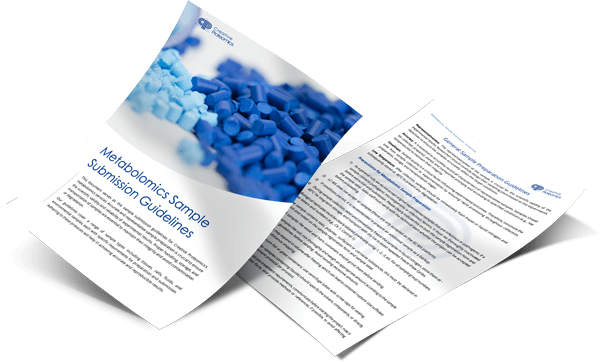- Service Details
- Case Study
PLFAs (Phospholipid Fatty Acids) are important components of living microbial cell membranes with a rapid turnover rate, quickly degrading upon cell death. Different microbial groups synthesize different PLFAs through distinct biochemical pathways, and certain PLFAs are consistently present in specific microbial groups while being rare in others. These relatively stable PLFAs serve as biomarkers indicating microbial quantity and community structure within corresponding groups. The advantages of the PLFA method include direct extraction from in situ soil, avoiding biases caused by cultivation and counting. Compared to traditional methods, the PLFA method provides information on all microbes in the sample and allows for the rapid analysis of a large number of samples, making it a fast and reliable analytical approach.
Phospholipid fatty acids found in soil are vital parts of the cellular membranes of live microorganisms and serve as important biomarkers to check for changes in the composition of the microbial population. Soil phospholipid fatty acid profiles study provides useful information for tracking the make-up of microbial communities and their complex interactions with nutrient availability. Additionally, this analytical strategy is very helpful for identifying the many fluctuations in the make-up and activities of microbial communities in response to a variety of environmental stressors found in soil, aquatic habitats, and waste materials.
PLFAs Mass Spectrometry Analysis Methods
Notably, when it comes to phospholipid fatty acid analysis, liquid chromatography-mass spectrometry (LC-MS) techniques encounter certain obstacles. These challenges primarily stem from the low ionization efficiency and substantial matrix interference, posing hurdles to achieving a comprehensive assessment of phospholipid fatty acid profiles. In contrast, gas chromatography-mass spectrometry (GC-MS) emerges as a compelling alternative, boasting several distinct advantages. Notably, it exhibits a robust capability to separate fatty acid methyl esters, ensuring high precision in results. Additionally, GC-MS demonstrates exceptional reproducibility, heightened sensitivity, and minimal matrix interference, thus rendering it an attractive choice for effective phospholipid fatty acid analysis.
Our PLFAs Analysis Service
At Creative Proteomics, we employ state-of-the-art techniques, including gas chromatography-mass spectrometry (GC-MS) and liquid chromatography-mass spectrometry (LC-MS), to achieve high-resolution, high-sensitivity, and high-throughput analysis of PLFAs. These advanced methodologies allow us to capture intricate details of microbial communities and their functions with unparalleled precision.
PLFAs Analysis Service Benefits
- Overcame the limitations of traditional microbial isolation and cultivation methods.
- Suitable for tracking the dynamic changes of microorganisms.
- High sensitivity and resolution
- PLFA analysis, detected by GC-MS, has a detection limit of up to 10°MOL/G, enabling precise quantification and semi-quantitative analysis.
- High throughput for efficient sample processing Customization for different sample types.
- Professional data interpretation and in-depth reports
PLFAs Analysis Service Workflow

Pyrolysis-assisted transesterification for accurate quantification of phospholipid fatty acids: Application to microbial community analysis in 1000-years paddy soil chronosequence
Journal: Geoderma
Impact Factor (IF): 6.114
Background
The soil bioprocess research team utilized paddy soil as a model ecosystem and established a pyrolysis-assisted transesterification pre-treatment technique combined with gas chromatography-mass spectrometry (GC-MS) for rapid, accurate, stable, and eco-friendly analysis of phospholipid fatty acid profiles in soil. This method incorporates a reusable, efficient, and stable porous material, diatomaceous earth, for in-situ pyrolysis-assisted transesterification of phospholipid fatty acids, and it has undergone systematic optimization and study regarding the conversion process, mechanism, and application.
Results
(1) Using diatomaceous earth as a non-catalytic material, the thermal-assisted transesterification reaction at a temperature of 370°C, reaction time of 8 minutes, and methanol concentration of 0.2 mL effectively converts phospholipids into fatty acid methyl esters without causing thermal degradation or cleavage of fatty acids. (2) The pyrolysis-assisted transesterification reaction exhibits high tolerance to water and organic impurities, demonstrating good linearity, repeatability, and reproducibility. (3) The porous material, diatomaceous earth, can be heated and reused multiple times with good transesterification efficiency. (4) The method applied to 1000-years paddy soil chronosequence reveals that the microbial biomass of the soil continuously increases during the transformation process from marine sediment to farmland. Besides the physicochemical properties of the soil, key enzymes involved in nitrogen cycling metabolism also play a crucial role in shaping the microbial composition and functionality in the soil.
 Figure 1 illustrates the mechanism of pyrolysis-assisted transesterification and its application to the analysis of 1000-years paddy soil chronosequence.
Figure 1 illustrates the mechanism of pyrolysis-assisted transesterification and its application to the analysis of 1000-years paddy soil chronosequence.







